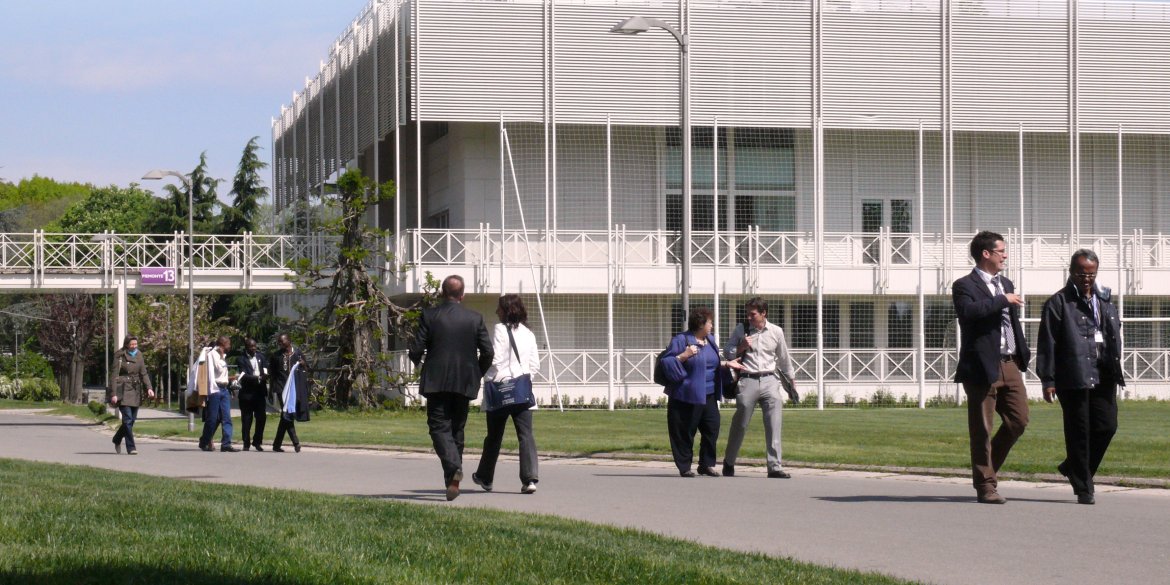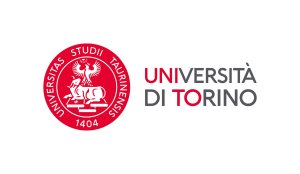Master in Industrial and Employment Relations (2026/2027)

Image © Costume 3 Pieces
Master in Industrial and Employment Relations (2026/2027)
21 Septiembre 2026–2 Julio 2027
El curso está disponible en English
Advance your career in industrial and employment relations with our multidisciplinary Master’s programme, offered by the University of Turin and the ITCILO. This extensive course integrates distance learning, an optional in-depth residential phase in Turin, and a thesis preparation period. Perfect for consultants, HR professionals, government representatives, and practitioners, our programme merges academic rigor with practical application. Join us to acquire the specialized knowledge needed to excel in industrial and employment relations. Apply today to take your professional journey to the next level.
Key features
MODERN METHODS
Learn by doing, through case studies, workshops, and group exercises
INSPIRING DISCUSSIONS
Exchange ideas with international students and faculty
HIGH-LEVEL RESOURCES
Engage with experts from the ILO and the ITCILO, practitioners and university professors.
Presentación del Maestría
In a fast-changing environment (political, economic, social, cultural and technological) in which governments, workers' organizations and employers' and business membership organizations are continuously required to adapt their strategies, a better understanding of contemporary trends and challenges in industrial and employment relations is a compelling need. To provide labour relations practitioners with the best possible learning environment and the opportunity to engage in serious discussion relating to industrial and employment relations, the International Training Centre of the International Labour Organization (ITCILO), in partnership with the University of Turin, Italy, is offering a Master in Industrial and Employment Relations. It includes a distance-learning phase with synchronous activities (weekly live webinars), and an optional residential phase of in-depth study on the ITCILO campus in Turin, followed by a second distance-learning phase for the preparation of the Master's thesis. The online learning journey allows students to engage continuously with a global faculty coming from a wide range of institutions, ranging from the ILO to universities and training and research institutions around the world. It is also an opportunity to share a learning experience with practitioners and students from all regions of the world. The Master in Industrial and Employment Relations aims to develop specialized, multidisciplinary knowledge in the field of industrial and employment relations from a comparative viewpoint. It will provide students with a deep theoretical and practical understanding of industrial and employment relations systems around the world by looking into recent changes and trends. The Master's programme combines the sound academic background of the University of Turin with the ITCILO's international training experience. An international approach has been applied to the content and methodology, as well as to the composition of the faculty.
¿Quiénes participan en este Master?
The Master in Industrial and Employment Relations is intended for participants with the following profiles: consultants and graduate students; government, workers' and employers' representatives; practitioners in the field of industrial and employment relations from the public and private sectors; human resources managers, personnel in human resources departments dealing with industrial and employment relations; labour court judges and lawyers; labour administration and labour inspection officials; staff of the ILO and other international organizations.
Methodology
The Master in Industrial and Employment Relations employs a comprehensive, interactive approach to equip participants with essential skills and knowledge. The programme integrates insights from various disciplines, including law, economics, and social sciences, for a holistic understanding of industrial relations issues.
Blended learning combines online modules with an optional residential phase in Turin, offering both flexibility and immersive experiences. Participants engage in lectures, seminars, workshops, and group exercises led by expert faculty. Real-world applications include study visits to organizations and hands-on training in labour dispute resolution and collective bargaining.
Modern technologies, such as virtual simulations and interactive online platforms, enhance learning. A capstone project addresses specific industrial and employment relations issues, applying knowledge to real-world challenges. Continuous support from experienced faculty ensures participants’ success throughout the programme.
Assessment
The Master in Industrial and Employment Relations employs a range of assessment methods to gauge participants’ understanding, skills, and progress:
Written exams evaluate comprehension of core concepts and principles. Practical assignments, including case studies, policy analyses, and labour dispute simulations. Individual and group projects focus on specific industrial and employment relations challenges, involving detailed research and solution development.
Oral presentations of projects or findings showcase communication skills and the ability to articulate complex ideas effectively. Continuous assessment through quizzes, discussions, and participation in workshops ensures ongoing engagement and progress. The programme culminates in a final thesis that addresses a significant issue in industrial and employment relations, demonstrating the application of learned concepts to practical challenges.
Duration, language and venue
The Master in Industrial and Employment Relations is designed to be completed within one year and comprises three main phases: an online phase, an optional on-campus residential phase, and a final thesis phase.
The programme is conducted exclusively in English, requiring proficiency for successful participation.
The online phase is delivered online, providing flexibility for participants. The optional residential phase takes place on the campus of the International Training Centre of the ILO (ITCILO) in Turin, Italy, offering an immersive learning experience. The thesis phase is conducted online with support from faculty members.
Structured learning schedule
The Master’s Programme in Industrial and Employment Relations offers a thorough and practical approach to understanding and addressing labour relations issues, organized into distinct phases
Phases details
- Online Phase
- Residential phase (on campus, optional)
- Thesis phase (Online )
- Final evaluation and certification
- Duration: 8 months
- Focus: Foundational knowledge in industrial and employment relations, including key theories, regulatory frameworks, and comparative systems.
- Activities: Online lectures, interactive webinars, case studies, and collaborative assignments.
- Duration: 2 weeks
- Location: ITCILO campus in Turin, Italy
- Focus: Immersive learning experience with advanced training in industrial relations practices.
- Activities: Seminars and workshops led by international experts, group exercises, study visits to organizations, and in-depth discussions.
- Duration: 3 months
- Focus: Research and practical application of industrial and employment relations concepts.
- Activities: Development of a capstone project or thesis, independent research, and online support and mentorship from faculty.
- Duration: 1 month
- Focus: Comprehensive assessment of acquired knowledge and skills.
- Activities: Written exams, Thesis completition and certification upon successful completion.
Objectives
The Master in Industrial and Employment Relations programme is designed to provide participants with a comprehensive and multidisciplinary understanding of labour relations by integrating insights from law, economics, and social sciences. It focuses on developing practical skills essential for navigating and managing complex labour environments, including collective labour relations such as collective bargaining and dispute resolution.
The programme emphasizes a global perspective on industrial relations challenges, utilizing international expertise and diverse participant experiences. Innovative learning methods, such as virtual simulations and interactive case studies, enhance the preparation for real-world applications. Additionally, the programme aims to develop proficient industrial relations professionals and offers networking opportunities to exchange knowledge and best practices across different regions and sectors.
Faculty
The Master in Industrial and Employment Relations features a distinguished faculty of experts committed to advancing the field of labour relations. Our diverse team includes esteemed academics, international organization specialists, and seasoned practitioners, all bringing a wealth of experience from various backgrounds. This rich blend of expertise ensures that participants receive a well-rounded education, integrating theoretical knowledge with practical insights from across the global landscape of industrial and employment relations.

5 reasons to choose the Turin School of Development
- 1. Global expertise and diverse faculty: TSD boasts a faculty comprising leading university professors, senior practitioners, and UN experts from over 80 renowned institutions worldwide. This diverse team ensures a rich, multidisciplinary educational experience that integrates global knowledge with practical expertise.
- 2. Innovative and sustainable learning: TSD’s programmes are designed to be cutting-edge, incorporating the latest technological advancements and sustainable practices. The combination of distance learning, face-to-face interaction, and applied project work minimizes participants’ absence from their professional duties while maximizing learning outcomes.
- 3. Strong connection with UN and specialized agencies: As part of the International Training Centre of the ILO, TSD leverages its unique position within the UN system. This connection provides unparalleled access to specialized knowledge and enhances the comparative advantage of its Master’s programmes in areas such as human rights, social justice, and sustainable development.
- 4. Comprehensive career preparation: TSD graduates are equipped with the essential competencies needed for careers in international organizations, governments, and NGOs. The programmes blend academic rigor with practical application, preparing students to tackle contemporary challenges in fields like international development, social innovation, and technology and public policy.
- 5. Multicultural and international environment: With participants from all over the world, TSD offers a truly global learning experience. Students broaden their horizons, enhance their managerial skills, and build a strong professional network by interacting with peers from diverse cultural and professional backgrounds.
Choosing TSD means joining a community dedicated to advancing social justice and sustainable development through high-quality, innovative education.
How to enroll
- Apply: Use the Apply now button, above, to fill out the application form.
- Confirmation: Successful candidates will receive confirmation, guidelines, and an invoice from the Centre.
- Payment: Secure your place by making the required payment, due at least 14 days before the course starts.
- Cancellation: If you need to cancel, notify us at least 14 days before the course start date to avoid penalties.
For more details on applications, payments, and cancellation policies, please refer to our Practical Information section or contact admissions@itcilo.org for general inquiries.
Alumni quotes
What surprised me is that Industrial Relations is a very broad field which I knew barely anything, but the Master provided me with necessary tools to begin this learning journey. Life is complicated, and you need to learn what you want to understand.




